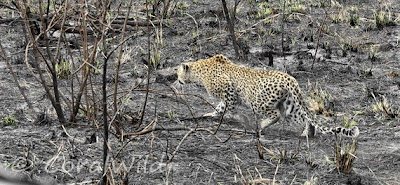Those of you that follow me on Facebook will have noticed recently a few more cheetah photos than normal.
That's because over the last 3 months or so we have had some really great sightings of this beautiful, elusive predator.
The cheetah is often at the top of my safari clients wish list, but with only 100 to 200 of these endangered cats in Kruger, it is a very, very special day that we get to see one.
One of the private game reserves we visit have tracking chips in their adult cheetah (for research purposes), so when we occasionally visit there we are almost guaranteed a sighting. (The young cheetah cubs in the following pictures were photographed there).
This elegant cat, which is the oldest of the large cats, having been around for well over 3 million years, is endangered for all the usual reasons (loss of habitat, poaching, indiscriminate killing by farmers etc.).
However the real sting in the tail, mostly due to it's very low genetic diversity, is that it's highly susceptible to diseases, has a low fertility rate and cannot adapt easily to significant environmental changes.
So populations across Africa and the Middle East have been declining steadily, and estimates put them currently at approximately 10,000 animals left.
So one has to wonder at how much longer we are going to be able to find these animals in the wild and enjoy their natural grace and beauty.
I've included below some of my favourite Cheetah pics taken over the last 6 years. I hope you enjoy them as much as I do.
Postscript:-
Many of the facts quoted above I obtained from the Cheetah Conservation Funds website. You can read more for yourself by following this link:- Cheetah Conservation Fund





















































